38+ Sample School Communication Plan
-
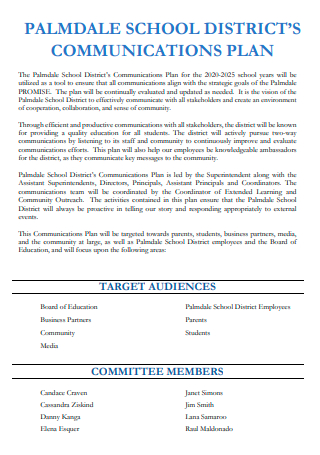
School Districts Communication Plan
download now -
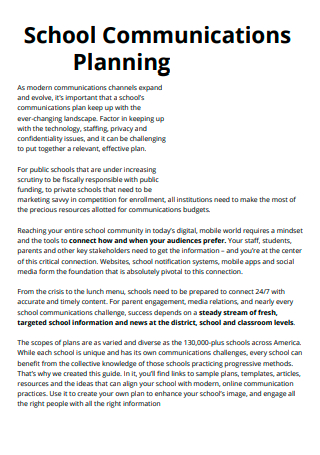
School Communication Planning Example
download now -
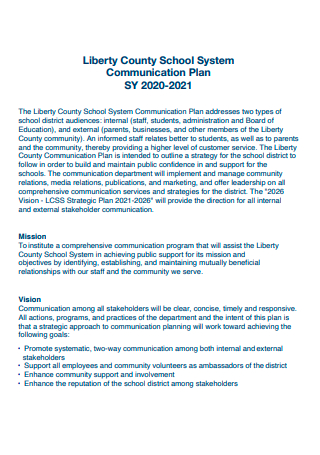
Liberty School System Communication Plan
download now -
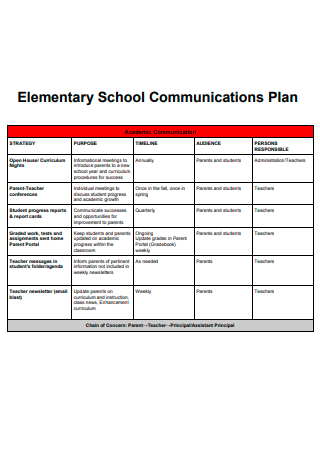
Elementary School Communications Plan
download now -
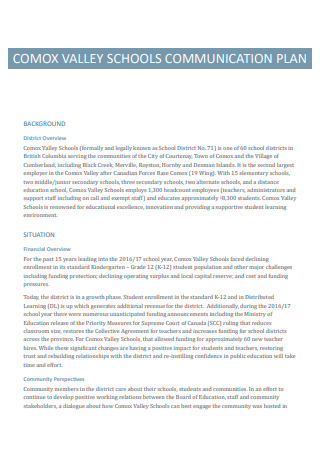
Valley School Communication Plan
download now -
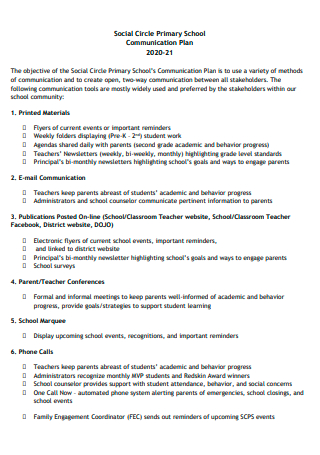
Primary School Communication Plan
download now -
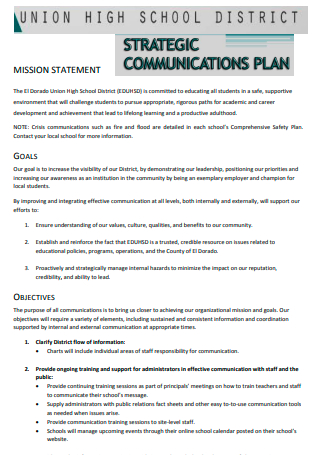
Union High School District Strategic Communication Plan
download now -
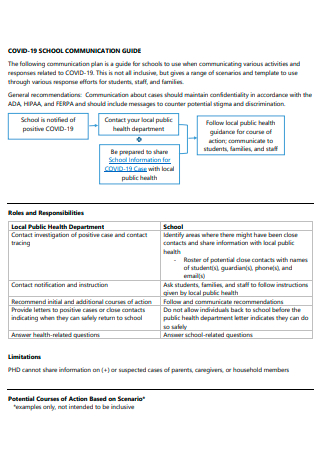
Covid-19 School Communication Plan
download now -
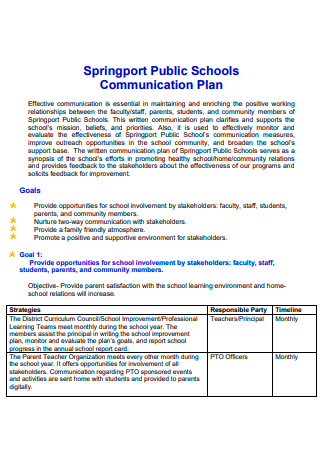
Public School Communication Plan
download now -
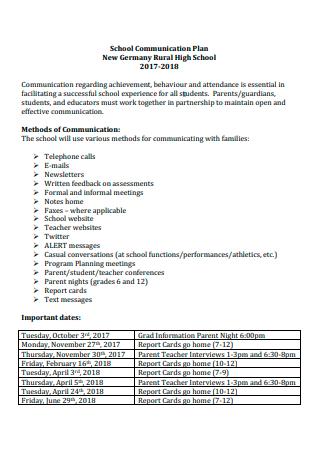
Rural High School Communication Plan
download now -
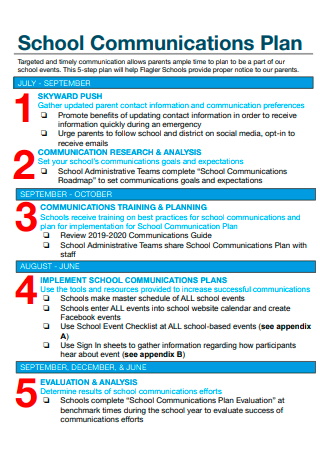
School Communications Plan in PDF
download now -
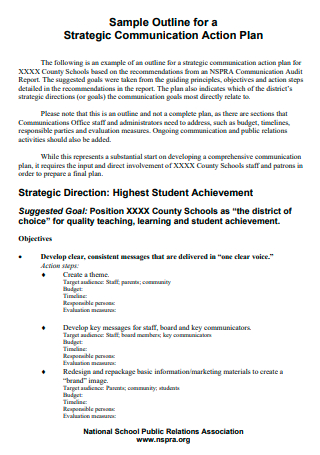
School Strategic Communication Plan
download now -
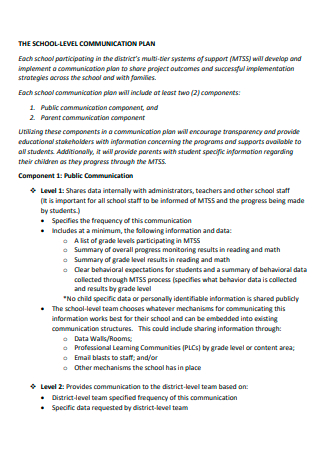
School Level Communication Plan
download now -
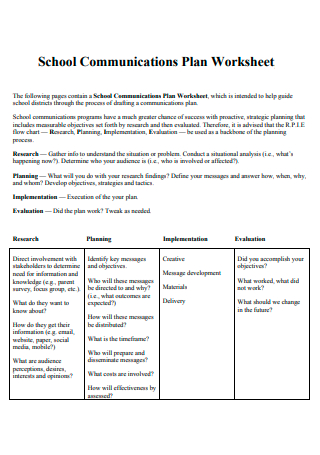
School Communications Plan Worksheet
download now -
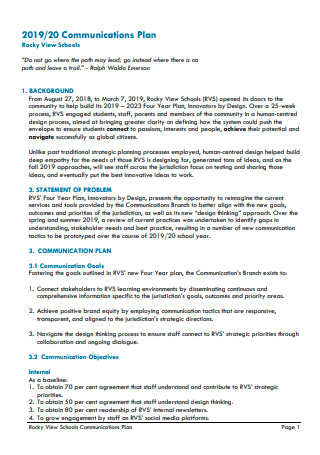
School Communication Plan Example
download now -
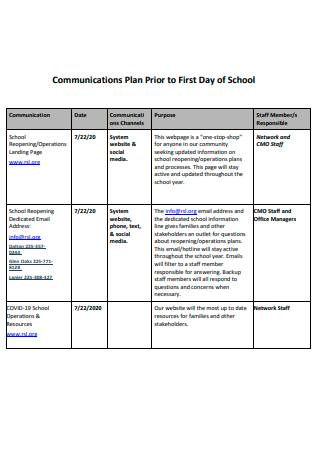
First Day of School Communication Plan
download now -
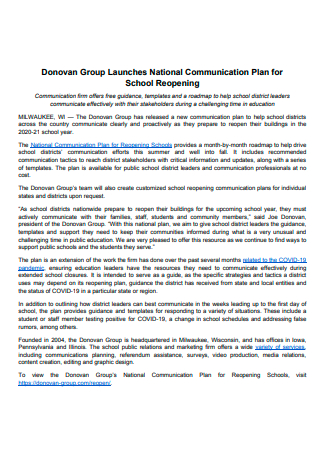
School Reopening Communication Plan
download now -
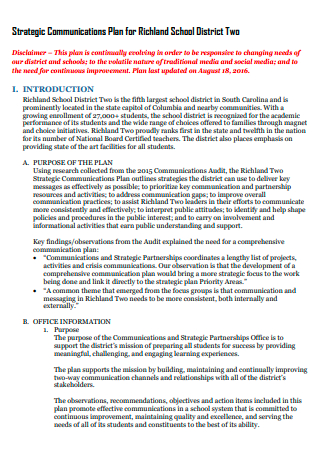
School District Strategic Communication Plan
download now -
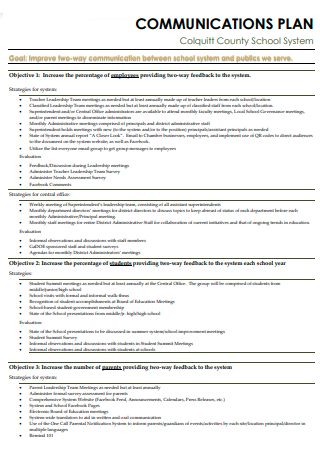
School System Communication Plan
download now -
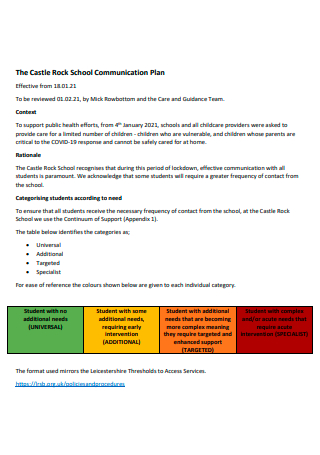
Basic School Communication Plan
download now -
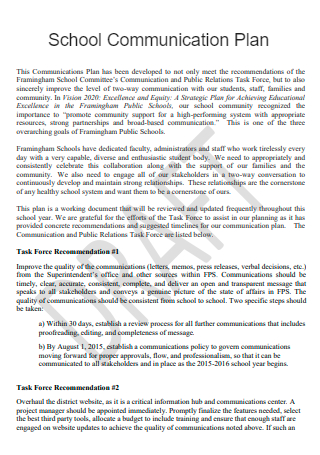
Draft School Communication Plan
download now -
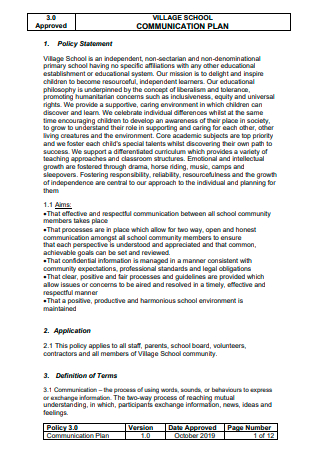
Village School Communication Plan
download now -
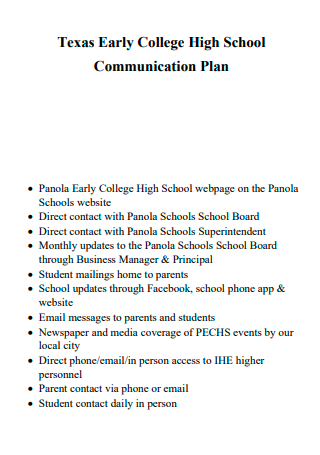
College High School Communication Plan
download now -
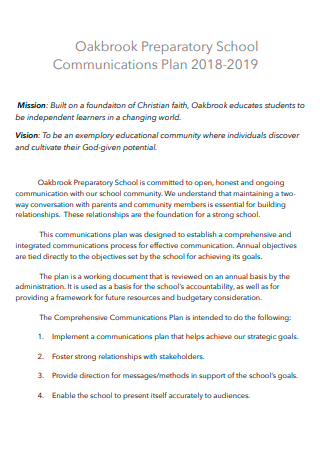
Preparatory School Communication Plan
download now -
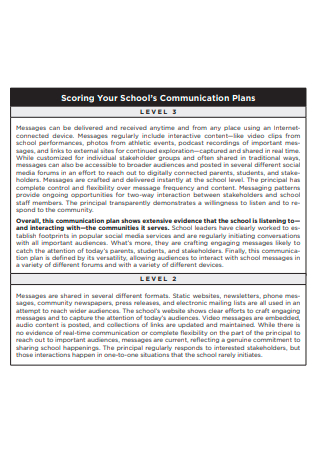
Standard School Communication Plan
download now -
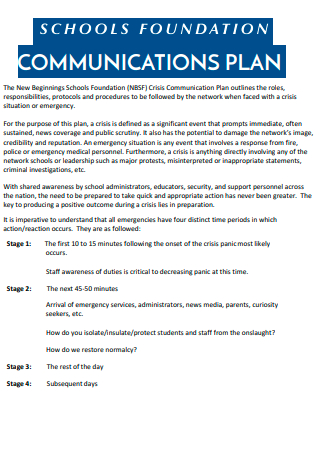
School Foundation Communication Plan
download now -
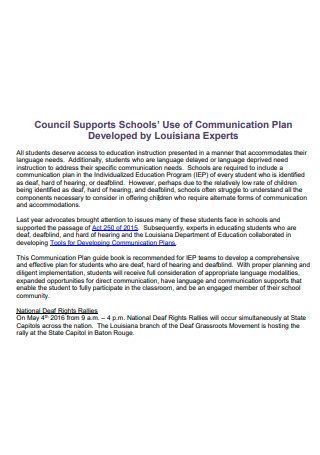
Council School Communication Plan
download now -
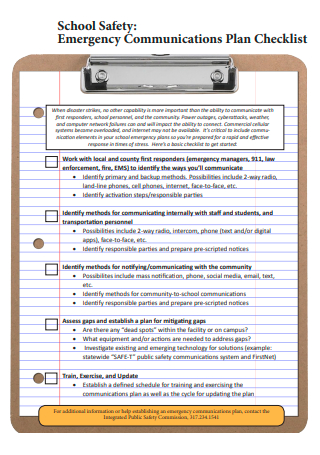
School Safety Emergency Communication Plan Checklist
download now -
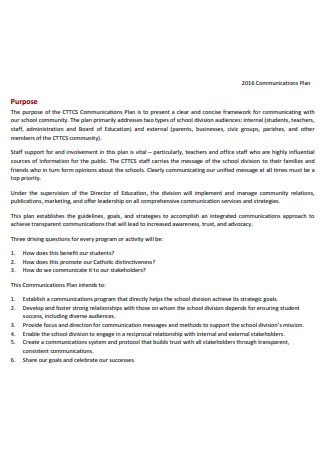
Catholic School Communication Plan
download now -
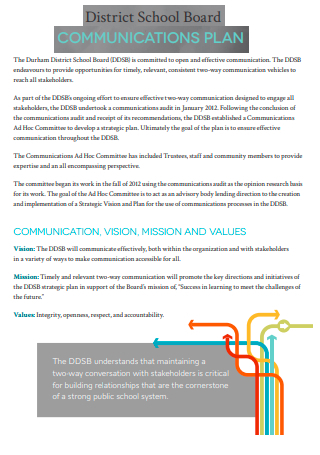
District School Board Communication Plan
download now -
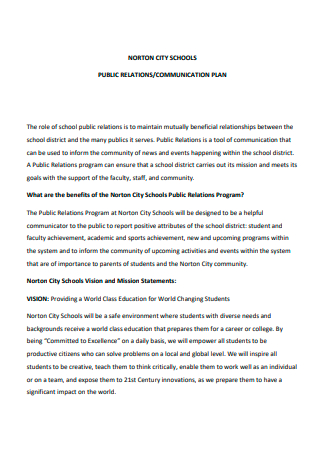
City School Communication Plan
download now -
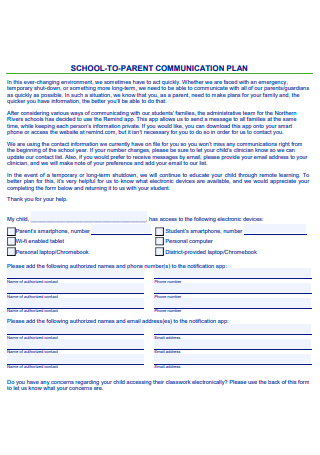
School to Parent Communication Plan
download now -
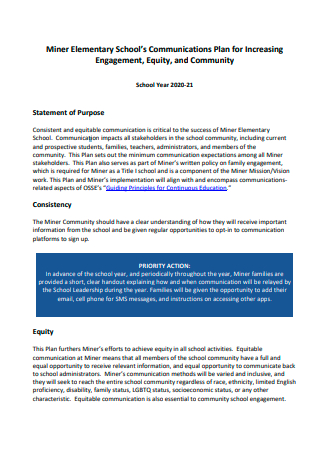
Miner Elementary School Communication Plan
download now -
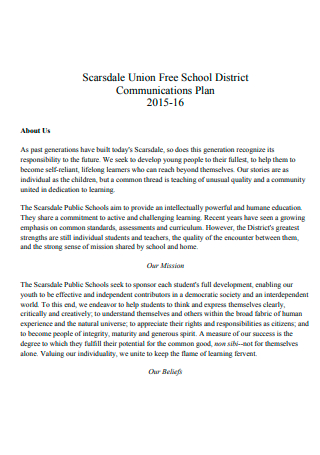
Union Free School District Communication Plan
download now -
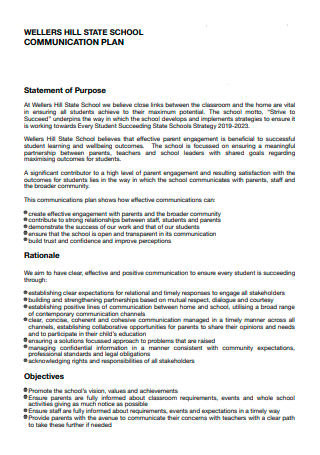
Formal School Communication Plan
download now -
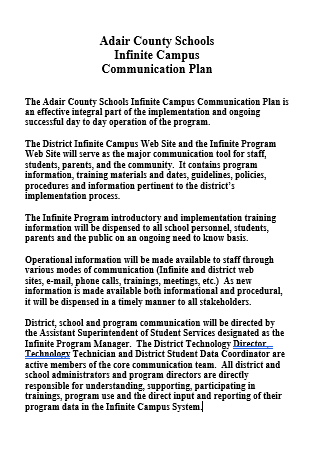
School Infinite Campus Communication Plan
download now -
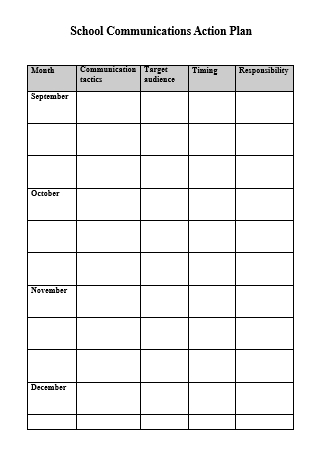
School Communication Action Plan
download now -
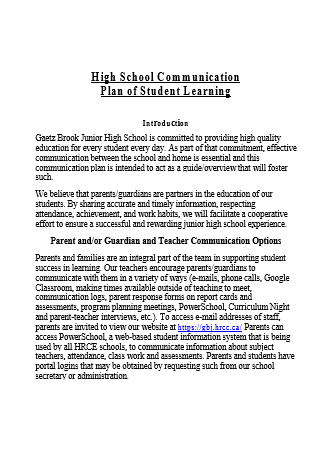
High School Communication Plan of Student Learning
download now -
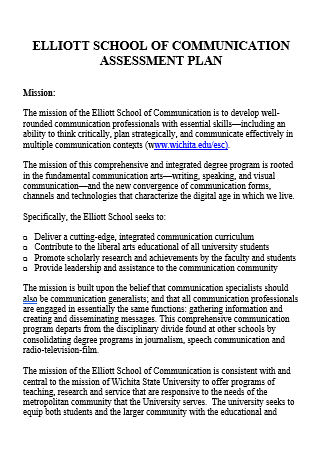
School Communication Assessment Plan
download now
FREE School Communication Plan s to Download
38+ Sample School Communication Plan
What Is a Communication Plan and a School Communication Plan?
Elements of a School Communication Plan
Creating the School Communication Plan
FAQs
What are some channels for communicating included in a School Communication Plan?
Why is knowing the target audience important in a School Communication Plan?
Is strategic communication important when coming up with a School Communication Plan?
What Is a Communication Plan and a School Communication Plan?
A communication plan is an approach driven by regulations and policies in place to provide all stakeholders involved with information related to an organization’s operation. Hence, a School Communication Plan is a planned, strategic and effective approach to deliver information about the school’s operation to all the parties, the students, parents and families, teachers, faculty, and other persons in authority involved directly or indirectly in the school’s management. For a school communication plan to be effective requires good communication skills as well as an adequate amount of marketing strategy skills. Some of the benefits of having an effective school communication plan in place is it helps accomplish the school’s objectives.
The communication plan serves also like a roadmap with its timeline for achieving the goal, and more importantly, for establishing the audience needed to participate in that goal through the information dissemination process. Aside from that, having a good, engaging relationship between the school and its community stakeholders can be developed through good school communication planning. Another benefit of having a communication plan is that the school can properly utilize the use of its time and resources. Having efficient communication processes like sending information through social media and other forms of digital platforms saves time in delivery, and also prevents wasting paper resources.
The challenges though of having a communication plan is how to properly structure it. Having an unclear and ambiguous plan can easily knock down the whole communication process itself. For example, having unclear goals and objectives, unclear timelines, unclear modes of communication, et cetera. Another communication plan problem is the availability of the resources. The challenges could be the unavailability of staff or personnel to compose the information content. It could also be the unavailability of communication channels, such as being unable to set up a digital media account due to lack of funding. Nevertheless, these need to be overcome since a school communication plan is integral to a school’s operation
Elements of a School Communication Plan
A school communication plan serves as a roadmap on how information is being delivered and distributed. It’s end-goal is to establish a clear communication between all stakeholders, by involving and engaging them in the communication process. It’s a two-way process, and the only way it’s going to be successful and effective is having the essential elements in place.
Creating the School Communication Plan
After knowing the essential elements that make up a school communication plan, next is to learn how to create one. A school communication planning is done most effectively if it is organized at first according to the type of communication it serves. So it could be for academics, for the staff, or for a broader school-wide communication. The following are the key steps when creating a school communication plan:
Step 1: Identify the Strategies
First, to organize the school communication plan, create a table with at least six columns. Label the first column as the Strategy. The strategy column should list down the school activities or school plans and operations that the school has prepared for the entire year. The school activities could be written down depending on what the name of that particular event is, or a brief one-liner description of the activity. Each event, or activity, is listed down in separate rows. Examples of a strategy, or a school plan, could be PTA meetings, staff meetings, open house, school website creation, and other plans that the school has prepared in implementing its operation.
Step 2: Writing Down the Purpose
Label the second column as the Purpose, or the Objectives. In line with each strategy, write down the equivalent objectives or the purpose. The school communication plan should reflect and explain why the school has decided to come up with that particular strategy as part of its operation. The purpose should be written down clearly, leaving no room for confusion or misunderstanding, and should be specific to that strategy. In the case of an open house event, the purpose could be to inform and introduce the parents to new curriculum or school procedures at the start of the school year. For the school website creation, the purpose could be to create a social media platform where everyone could access the school’s public information and announcements. It serves to keep everyone updated with the latest and important information coming from the school. And, it also serves as a platform where everyone can easily interact and communicate if they have any issues or concerns regarding school’s activities, programs, et cetera.
Step 3: Setting a Timeline
The third column should be labeled as the Timeline. With all kinds of planning, there is a timeline to be met. Each strategy, or activity, has a set of timeline as to when it will be implemented. The timeline in the school communication plan is the frequency and the duration of how the information is being disseminated or communicated. It creates a sense of emergency, if needed, for a particular activity or program since all the plans the school has prepared is good for only a particular school year. For example, in our first given example of creating an emergency response center in case of extreme weather disturbances, the timeline should be noted on an “as needed” basis. Meaning, this particular strategy is dependent upon the weather forecast for the area.
If the school community is located in a particular locale where it is prone to hurricane events, then the school in that area is keen to monitor the weather forecast on a regular and consistent basis. They prepare the strategic plans in place involving the emergency response center, setting out the purpose and objectives for the center, and the timeline is based upon “as needed” or upon the weather forecast. So the dissemination of information, as part of the school communication plan, in this case, takes place when the weather disturbances start to happen and when it will end. Another timeline example is for the strategy of the creation and distribution of the school handbook. In the school communication plan, it is usually tagged as annually under the timeline as to the frequency of the student handbook distribution.
Step 4: Establishing the Audience
The fourth column is labeled as the audience. This is the target communication to whom the information is intended for or is delivered to. Knowing your target audience can also help you decide which is the best communication channel to reach them, whether through digital form such as through emails, messaging apps or social media, or through printed form such as newsletters, personal letters, et cetera. Just write a brief description or identification of whom the target audience is for that specific strategy. It could be the parents, the students, the staff, et cetera.
Step 5: Identifying Persons In-charge
The fifth column is naming who is the person, or the group, in charge of creating and disseminating the information. That person or group is tasked with composing the content of the information, basing off the type of target audience that information is intended for. The person in-charge could be the principal, the student council president, or it could be the faculty administration as a whole.
Step 6: Describe the Communication Channel
The sixth column is where you identify how the information will be delivered. Again, basing off of your target audience, identify which is the best approach to reach them. Some communication channels could be through social media platforms, text messaging apps, emails, newsletter, printed flyers, personal letters, or it could even be through advertisement postings. This is where you also indicate how your target audience could be able to provide feedback. You can provide details such as telephone numbers or emails where they can reach the persons-in-charge if they have any questions or concerns.
FAQs
What are some channels for communicating included in a School Communication Plan?
These channels could be the school and district websites; phone and email notifications and alerts; social media platforms; blogs and vlogs; mobile apps; printed flyers and posters, et cetera.
Why is knowing the target audience important in a School Communication Plan?
Knowing your target audience helps in creating the context of the information to be communicated. It sets the tone, whether it needs to be communicated in a formal or informal way. It also helps in determining the best way to deliver the information, or which channel communication to be used.
Is strategic communication important when coming up with a School Communication Plan?
Strategic communication is the guiding policy rules in place that ensures the consistent delivery of information between all stakeholders, and is usually used in public relations. It is also important to use this type of communication process to make certain that there is consistency of communication and transparency of operation coming from the school as an organization.
As an important part of society, schools must be transparent in all its operations. They are, after all, being entrusted with the welfare and well-being of the children within the local community. In order to encourage that trust from the community, there must be an open communication between the school and all parties involved. This open communication is assisted further by the use of a School Communication Plan. The school communication plan must be laid out clearly as possible since it will be the basis of the two-way communication process between the school and the community, which includes the dissemination process and the feedback process. To assist you in creating that effective communication plan for your school, download one of our templates now, and see how easy it is to formulate that communication process!
